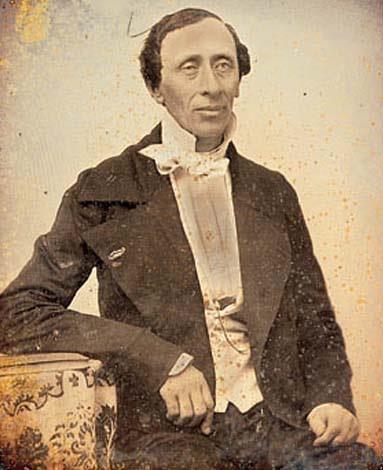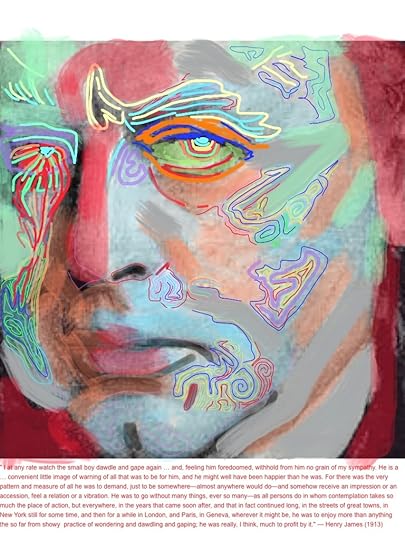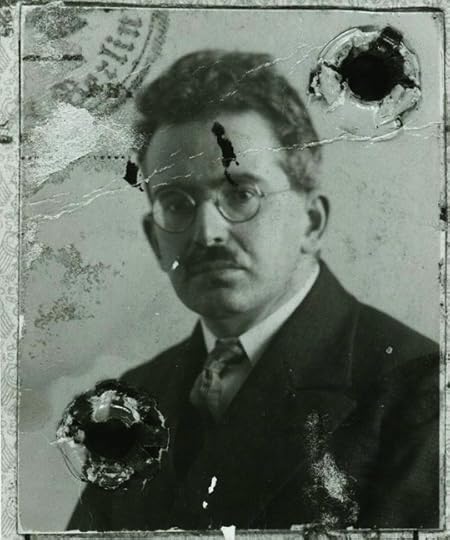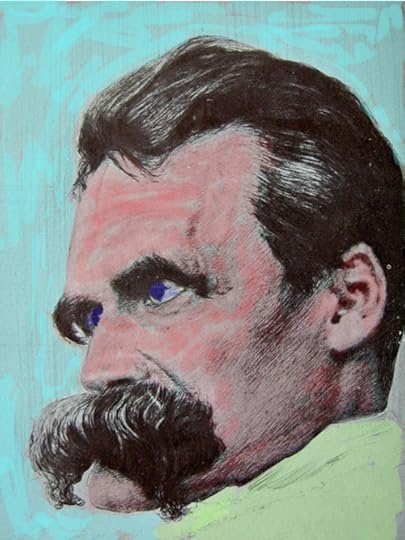Marcus Speh's Blog, page 3
April 11, 2013
The Vonnegut Challenge
The the writing community Fictionaut, Ramon Collins started in interesting debate on an old issue, a challenge for the modern writer thrown out by Kurt Vonnegut, which got me thinking about the role of technology in writing today:
In “How Literature Saved My Life,” David Shields paraphrases Kurt Vonnegut: contemporary writers who leave out technology misrepresent life as badly as Victorian writers misrepresented life by leaving out sex.”
If you were hoping for an article on sex in Victorian times, you’ll be disappointed. Read Henry James’ first ever novel, “Watch and Ward” instead, or pick up some D. H. Lawrence for juicy details on how to undermine puritanism.
Back to Vonnegut’s challenge. In a writing group a while back we would meet, chat and then spend the evening writing flashes which we’d read to each other and critique on the fly. Once, a young writer who might have been driven by Vonnegut’s devils, challenged us to incorporate technology into our stories for that day. We groaned. Technology made us yawn, a little like the request “put a fridge in your story”, but we did it. Interestingly, the technology, though it was now present in all the stories I remember, took a back seat.
This was contrary to what I had expected: I’d feared it would take over. I learnt something about strong storytelling that day (all the group members were strong story tellers) and I somewhat lost my own fear of mentioning technology in non-sci-fi stories. I still feel reluctant to engage with it because I do feel, rightly or wrongly, that too often it acts as a placeholder for more traditional narrative elements, which means the story as a narrative is weaker: an iPhone suggests tardy trendiness, home cinema suggests couch potato or movie buff, a talking refrigerator suggests high-tech urbanity etc. but each of these artefacts cheapens the character and axes character building. The story I wrote that evening was later published (as part of a trilogy) in Wilderness House Review (and nominated for a Pushcart in 2011). See if you can even spot the technology in this flash… – it will be published in my new collection “Thank You For Your Sperm“.
There’s a life altering quality to electronic consumer technology in particular that is quite unparalleled in history, at least with regard to its global touch and culture-unifying quality and the way that it pervades our communication. Invention of the letter, the telephone, the bicycle were on a similar scale, pulling people in because they made them active (rather than passive) consumers. In the Fictionaut discussion, Seattle writer Matt Robinson expressed it thus: “How to convey it in an engaging, meaningful way without simply mimicking it?” — one might say ‘how to give technology a voice of its own”, almost like a character.
Technology is often depicted as the devil of modern civilisation—the dark side of technology, with its often depressing, dangerous consequences more easily adopted by literature—perhaps because negative headlines command so much more…what? Urgency? Think about global warming as a narrative, or about the threat of nuclear war. As someone who spent his childhood in West Germany under the shadow of the iron curtain and its imminent threat of nuclear extinction, I resonate with the need to grasp these dangers…but I’m also now much more aware of the mythological properties of these things: they’re placeholders, too, not just a bundle of scientific, political or military facts. To write about them as if they weren’t (as journalists do) is missing an important point.
This reminds me of the feud between H. G. Wells, the very political writer of action-driven grand human designs (and also consummate storyteller) and Henry James, who consciously stayed away from any contemporary dialogue, political crisis or technological excitement (of which there were many in his day, his grownup life having unfolded between the Civil War and WW I) and was heavily criticized by Wells for that. Interestingly not by G. B. Shaw, a writer no less political than Wells (rather more so). Shaw saw more clearly, I speculate, that the deepest commentary on humanity is not to be had by commenting on the action of man but by exploring character and setting characters against one another. To complete this quartet, another thinker and writer comes to mind, Bertrand Russell, who followed yet another path in writing his most influential English non-fiction series specifically targeting topics of the day: modern marriage, religion, philosophy, history…when all these things still meant something, before the great wars and the Holocaust melded them into one thing that’s very hard to describe and do justice to. These are four radically different (European) approaches to the Vonnegut challenge.
The general, abstract conflict we feel about technology may be interesting for non-fiction writers, but to turn a solid pot of fiction from the clay of life, someone, a fictional character, needs to be conflicted about technology, the use, the lack or the price of it. The conflict felt by this character must affect relationships with other people and cast a scenic shadow which makes us dream. And it must do it at a deeper level, touching values that are bigger than any one or any thing, the stuff of love, life, death and evil. These values are untouched by technology: they were there before we had technology and they will be there long after we’ve integrated phones into our ear lobes and cameras into our eye sockets.
Technology and other contemporary predilections are mere vessels that can be, and have been, swapped for others in the past. That’s why technology, I believe, just like particular sexual practices, attitudes or habits, culturally defined forms of sexuality (or religion, to name another contentious topic, or gender politics etc), is dispensable when writing quality fiction. When these topics, these human artefacts, are given too much weight, they distract from (at best), or destroy (at worst) the fictional dream. I exempt genre writing (most notably science-fiction) and hack writing because obviously they follow different laws.
Put differently, explicit renderings of technology or sexuality, just like explicit accounts of other cultural phenomena, are background, not even necessary to establish what we value most about stories: the entanglements of human lives, their struggles against nature, their suffering and perseverance in the face of certain death. It matters little if this death comes in the shape of a poisoned apple or an atomic missile, just as love and relationship do not depend on sexual technique (though it may help or hinder). We don’t notice the absence of today’s technology or the presence of yesterday’s when we plow through Shakespeare, when we weep with Henry James or when we laugh, bitterly, with Vonnegut.
Notes: Published at Yareah Magazine on the eve of the 6th return of Kurt Vonnegut’s death-day—check the discussion there, it rocks; Fictionaut debate started by Ramon Collins; David Shields; Watch and Ward by Henry James; my review of “First Love” by D. H. Lawrence; Seattle writer Matt Robinson. Image: based on a photo of Kurt Vonnegut.

April 7, 2013
Factory of blind infants
“An achievement in art or in letters grows more interesting when we perceive its connections.” —Henry James
In preparation of the (by now irreversible, one hopes) publication of “Thank You For Your Sperm” (TYFYS), I will post a handful of its 80 stories together with background, notes on the story’s genesis and so on. This post also includes a reading of the two flashes “Freedom Ties” and “The Schmock”, both first published in SAND, Berlin’s English Literary Journal.
Freedom Ties
My written pieces are necessarily very short because life is very short. This suggests that we should pay attention to the tiniest details. I saw a man today with extraordinarily precise dimples in his chin. It reminded me of the elevator scene in Charade, which in turn reminded me of Cary Grant’s complexion and of the way people used to dress. I wore a suit today and a pink shirt and I took my tie off in front of a large crowd. It was weird, I felt like Cary Grant. Coincidentally there was a woman in the first row who had Audrey Hepburn’s eyes. When I spoke, she rolled them to the ceiling and back. I felt strongly like interrupting my speech to ask her why she did it. On my way home, I noticed barb wire on the top of a house: it did not make any sense there. Not that barbed wire makes any sense anywhere. It seemed to have been dropped there by a mad flying policeman. I think we’re being watched from the air all the time. I don’t mind. When I took my tie off, my neck yawned with relief. I hung that tie in the window as a message for everyone that freedom is still a possibility.
The Schmock
The Schmock greeted his fate with perfect equanimity. He’d begun the day by shooting six Chechnyan gangsters and now he was going to have a hearty breakfast. The bandits stood in the entrance to a house that the Schmock had a right to enter. They felt uneasy and touched their gold watches for good luck when one of them uttered the view that crime didn’t pay, and uneasier still when another openly doubted the morality of their nightshade lives. It was then somewhat of a relief when the Schmock ended them with one round of tungsten Sierra bullets all to the head.
The words “Factory of Blind Infants” on the inside jacket of the breviary found at the murder scene didn’t mean anything to any of the policemen in attendance.
 Both of these stories came out of daily neighborhood observations: the idea for ‘Freedom Ties‘ goes back to a conference talk where I, in order to stir a stiff audience up a bit, took my tie off at the beginning of my speech (on social media and e-publishing). On the way home, I couldn’t get Cary Grant out of my head (who wouldn’t have approved of my removing the necktie—you know what a fashion stickler he was) & when I noticed barb wire on a building, the story came together as a story about man’s freedom. Of course, you’re free, too, to read it any way you like…
Both of these stories came out of daily neighborhood observations: the idea for ‘Freedom Ties‘ goes back to a conference talk where I, in order to stir a stiff audience up a bit, took my tie off at the beginning of my speech (on social media and e-publishing). On the way home, I couldn’t get Cary Grant out of my head (who wouldn’t have approved of my removing the necktie—you know what a fashion stickler he was) & when I noticed barb wire on a building, the story came together as a story about man’s freedom. Of course, you’re free, too, to read it any way you like…
…as for ‘The Schmock‘, similar story: I had just come from my doctor where I’d received good news regarding a nasty-looking mole (hypochondriac’s unite!) … so death was on my mind. As I was cycling home (there is a lot of bicycle traffic in my Kiez in Berlin, especially in summer—it’s the vehicle of choice for short & medium distances), I noticed a group of men in black suits loiter in a house entrance, and the possibility of death in connection with the strange suits created the story almost as you see it here, literally in one flash.
NRA members! There are no “tungsten Sierra bullets”, as you well know. There’s however, a tool company, Sierra Tools, that produces cutters made of tungsten. Chechens!—no offense: your recent violent history with Russia made me think of your ethnicity. The “Factory of Blind Infants”, which made its first appearance in another set of prose poems, “Rites of Spring“, was added on a whim to underline the obscurity of the crime scene…I had originally planned to write a novella about this ominous ‘factory’, but so far this has remained a plan and a handful of flashes. — ‘The Schmock’ was favorably reviewed by Sam Rasnake (for my alter ego Finnegan Flawnt):
«The piece – “The Schmock greeted his fate with perfect equanimity.” [...] fully exemplifies to my eye and ear the written landscape that is uniquely Flawnt’s. Wonderful rhythms and imagery – and a matter-of-fact style that overwhelms the reader. Strong writing. Love the closing of this piece. “The words ‘Factory of Blind Infants’ on the inside jacket of the breviary found at the murder scene didn’t mean anything to any of the policemen in attendance.” Perfect.»
If you enjoyed the audio versions of these stories, or if you have a freakish propensity towards foreign tongues, you can also listen to the German versions of these stories, as “Der Schmock” (The Schmock) and “Das Schriftstück” (Freedom Ties). It is really quite extraordinary to compare the sounds of stories in English and German. I’m always astonished myself.
The English stories are included in my debut collection, “Thank You For Your Sperm” forthcoming from MadHat Press. You can like TYFYS on Facebook or Google+ (or both), and very soon you should be able to place an order for yourself, for you friends, or for your friendly birth partner…

March 31, 2013
Six Spring Tweets
![[twisted tweets] we were inspired by the lack of buzz, by the silence that precedes the great quiet that follows the storm.](https://i.gr-assets.com/images/S/compressed.photo.goodreads.com/hostedimages/1381137731i/4337897._SY540_.jpg)
[twisted tweets] we were inspired by the lack of buzz, by the silence that precedes the great quiet that follows the storm.

terrorizing the world
with tweets as haikus
words need nobody
[hypnotic tweets] he loved saying outrageous things in a paradoxical way so that he left everyone wondering and ready to discharge as if in a state of indelible trance.
![[the blind man's tweets] I held the words in my hands. They were cool to the touch. I wanted to put them in my mouth but I was afraid I might choke on them.](https://i.gr-assets.com/images/S/compressed.photo.goodreads.com/hostedimages/1381137731i/4337900.jpg)
[the blind man's tweets] I held the words in my hands. They were cool to the touch. I wanted to put them in my mouth but I was afraid I might choke on them.
![[healing tweets series] He was beginning to heal himself one tweet at a time. a traditionalist at heart, he wrote them on parchment first then typed them carefully.](https://i.gr-assets.com/images/S/compressed.photo.goodreads.com/hostedimages/1381137731i/4337901.jpg)
[healing tweets series] He was beginning to heal himself one tweet at a time. a traditionalist at heart, he wrote them on parchment first then typed them carefully.
![[mutinous tweets] he was waiting for her to make up her mind about his age and the size of his ego both wrapped up in one big man package.](https://i.gr-assets.com/images/S/compressed.photo.goodreads.com/hostedimages/1381137731i/4337902.jpg)
[mutinous tweets] he was waiting for her to make up her mind about his age and the size of his ego both wrapped up in one big man package.

Please use my timeline as if it were your own.
In exchange, like “Thank You For Your Sperm”.
And don’t let go of the idea of the Easter Bunny.
Magical creatures depend on our goodwill.
Now more than ever. Share this post freely.

March 29, 2013
Bezos Loves Books

“Are you only with me for the money or do you really love me?”
In fact, the Amazon CEO loves them so much that he has just bought Goodreads, a social media site for readers and writers with 16 millions followers. My response below (really more of a ramble) seems a tad confused even to me, the author, but these times are complicated. I sense a certain religious subtext but perhaps it can be forgiven because these times require special spirit and because books, after all, are items of a quasi-religious reverie to many of us…
The purchase, warmly described by Goodreads as “joining the Amazon family” and greeted with “Nooooooo!” by the Washington Post, is quite impressive on the open-ended monopoly scale. It follows taking a 40% stake in LibraryThing (2006) and the purchase of Abebooks (2008). LibraryThing is a service much like Goodreads that looks more like a librarian’s day dream and less like Oprah’s book club. Abebooks is an online book store with a 1995 web design (a nostalgy trip for Bezos?).

He only liked reading those who liked reading him.
But customers LOVE amazon and they LOVE Kindle. Authors who care about being LOVED by MANY readers ought to get in bed with Amazon if only because all traditional publishing is going to wither. It’s not going to be like pillaging, or if it is, it’s going to be a very slow pillaging that in the end will feel like true LOVE. Because the CEO of Amazon, Jeff Bezos, has publicly said that he LOVES books. And one has to admit he has done a lot for the book as a commodity. Almost as much as Hitler did for progressive literature by singling out all those books he LOVED and burning the rest. I know this is not a fair comparison, how could it be: Bezos is not Hitler, pillaging is not proposing and book is not nook, nor is LOVE love. Or is it?

He’s a man on a mission but is he in control of his gun?
Every term I show my students the interview Charlie Rose did with Jeff Bezos in 2007 when the Kindle came out and every year more students have a Kindle or read on their smartphones while thinking Bezos weird and making fun of his tic which is visible in the interview (you gotta check it out: he says there that he LOVES books while twitching uncontrollably. The students ask: is he for real?). Of course every writer has the choice to withdraw from the market and focus on the writing. We can all cancel our accounts, stop writing reviews and so on. We can seek alternatives to nuclear energy. Under a Hitler, we can leave our families and skip the country and our language. All I’m saying: it’s not as easy as it sounds to separate from the system. But the very least we can do is talk about it openly while we still can.
Myself, I ordered a book from Amazon yesterday and wrote a review for goodreads and posted on Facebook, later I’ll lie down and I’ll let my Kindle read something to me with its metallic voice that one can get used to, you can choose between a male or a female robot, just as one can get used to getting one’s money from a machine, paying with an e-mail or tweeting one’s significant other, or asking a box with a voice how to get anywhere in the city. And of course, I’ve not typed any of this, I’ve spoken it using software that turned my mumbling into readable, hard prose for what it’s worth. Amen.
Note: The author of this article is an Amazon author and a Goodreads Librarian. He believes in spreading himself thinly, so thinly in fact that no single social media location can claim to own him wholly. He is in fact split about Amazon and indie book stores, about big time publishing and indie presses, and about almost everything in existence. Like: psychotherapy. Climate change. Writing. This behavior is almost a theme which shows up in many of his stories: commitment, ambivalence, existential angst are issues of his central characters. To find out more, buy his book when it comes out in May.

March 24, 2013
Net Worth
Readers of my posts or my fiction may think that I am all over the place mentally, emotionally, procedurally…nothing could be further from the truth. I’m actually very structured, obsessed by detail and orderly to a fault. I’ve always been a maker and checker of lists, and I’ve always been interested in the workings of my mind as if it were someone else’s. Example: when I was 16 years old, I recorded and plotted all my school work hours vs my school results in order to figure out if I had a discernible biorhythms that would help me optimize the return on investment…we are still only talking about middle school here!
When the picture below yesterday formed in my mind while I was thinking about the imminent publication of my story collection “Thank You For Your Sperm”, I was therefore not scared but pleased to continue a history of small, useful obsessions. I employed the kitchen blackboard to draw my “meta-verse”, the network that contains and generates many of my non-fiction pieces: blog posts using WordPress, Tumblr and Blogger; forum posts, for example at Fictionaut; and mini-posts on Facebook, on Google+ and (painfully short) on Twitter. I don’t know if this layout is interesting or relevant to others. I thought it was interesting to see that “community” is the counterpart of my individual ideas. This blog best reflects my ideas. Tools like Twitter or Google+ are closer to the concept of community. I perceive both platforms as more open in comparison to Facebook or to a discussion forum. The latter two serve cliques (albeit often very large cliques). I use Facebook as a public notepad, often in connection with an image: I may write a Facebook post within an hour of having an idea or even spontaneously. This means that I rarely think at length about these posts. Then I repost on Google+. There is no difference in content between the two posts; on average, the Google+ article is even less content rich because it is missing links to the names and pages of other artists or communities (Google+ has got these now, but they’re relatively new). The Facebook post can serve as a germ for a blog post (see some examples). The blog post typically requires a lot more research and thinking. This will take up to a month or more. Often the Facebook note will not turn in a blog post but into a different format because my blog offers a number of media formats: podcasts, quotes, interviews, book announcements and so on. Finally I’d like to mention the forums: this is frequently the place where I create longer texts which are then expanded upon or integrated into my blog (or into a Facebook post at first).
Why am I doing all this? I’m not quite sure myself. The simple answer is: because I can and because I can do it efficiently enough not to burn up all the time which I’d rather use to write. But that’s too linear and too limited a response. The truth is that an exchange takes place between all the different elements of this network, i.e. the arrows actually go both ways. The image illustrates the system of interactions that helps me generate many ideas. I then inject some ideas back into the same systems of interactions. I do this (unconsciously at first) to generate a value-add though I do not know how much it is. This kind of value-add is hard to quantify. The fact that after years of practice I still stick to this scheme shows that I have always been able to mop up enough value. Several natural parameters can severely limit the usefulness of such a system: an example is the size of the network, or the number of comments on one’s blog. Every interaction engenders more communication and eats up more time. One must constantly be on guard lest one be gobbled up by one’s own invention like Wan Hu and his 47 rockets. Intelligent tools can support networking but they can also lull you into a false sense of security and a feeling of timelessness. Tools cannot eliminate the basic conflict between communication and creativity: communication can be very creative but not all creation is communication.

Six soldiers: WordPress, Fictionaut, Google+, Tumblr, Twitter, Facebook.
[Original post in German] [Update: I didn't say much about the relative virtues of WordPress vs. Tumblr or Blogger. I use WordPress (this blog) as the central content hub; Tumblr is useful to connect to certain communities (e.g. Alt Lit or Kaffe in Katmandu) and encourages reblogging, and Blogger is my German base of operations (lots of traffic, little feedback). I recommend WordPress as the most flexible system to create a web presence though of course there're many more ways to do this. Special advice: don't use blogging software at all unless you intend to blog. Regularly. Often. If you only tell your readers about your successes, they might get bored quickly unless your natural charisma helps them forget that you lead them on...here's some encouragement to blog for writers.]

March 19, 2013
The breath of death
In honor of the (by now irreversible) publication of “Thank You For Your Sperm” (TYFYS), I will post a handful of its 80 stories together with background, notes on the story’s genesis and so on. This post also includes a reading of “Asthmatic”, which was first published in A-minor magazine in 2010.
“Asthmatic” lives close to the bone, close to my blood flow. The background is very personal, more personal than any other story I’ve published except one titled “The Serious Writer And His Mother” which also deals with death (also in TYFYS). The earliest version of “Asthmatic” was written on the train, the same train that had brought me, a few years earlier, to Hamburg on the day my father had died and lay in state in his apartment so that we could say our good-byes to him. After his death I developed a serious case of (temporary) asthma. I say ‘in response’ because he’d suffered from pulmonary problems for years before his death, and though I don’t know the exact pathways that my unconscious traveled in order to come up with the idea, I remain convinced to this day, that my asthma was part of my grieving process. — I’m equally convinced, as the narrator say, that asthma is a refusal to take life in the form of breath. It is of course, possible to live a very long time that way. It is even possible to write, and write well—an excellent writer like William Gass strikes me that way, and there are others who seem miraculously (given their mastery of the craft) restricted, or self-restricting. It may be as simple as fear of one’s death. Respect of death, and love for life is a sure sign of (writerly) health. For me, the death of loved ones forms the core of my sincerity. Thinking of them and of the experience of loss surrounding their deaths helps me refocus on existential issues, on the issue of being a man, of being true. After death, there’s only forgiving: them, ourselves; and listening to the bees singing on the barren heath:
Once meek, and in a perilous path,
The just man kept his course along
The vale of death.
Roses are planted where thorns grow,
And on the barren heath
Sing the honey bees.
[From: William Blake, The Marriage Of Heaven And Hell. The photo above shows Blake's death mask.]
“Asthmatic” was first published by Shel Compton in A-Minor magazine, presently relaunched with Nicolette Wong at the helm. It is included in my debut collection, “Thank You For Your Sperm” forthcoming from MadHat Press. You can like TYFYS on Facebook or Google+ (or both), and very soon you should be able to place an order for yourself, for you friends, or for your friendly birth partner…
[Click to listen to this story.]
Asthmatic
On August 12, I realised that my asthma was an unwillingness to take life in. That I was alive nevertheless, and remained so, was, for me, one of the many paradoxes of existence, strewn across our path as unsolvable riddles, tough mind candy to chew on. I did not care for His jokes.On August 13, I had decided to end my life. I instantly knew how I’d do it: I would jump of Jefferson bridge and enjoy the short flight. I calculated that I would fly for 6.34 seconds. In this time span, I wanted to see and experience everything as if for the first time. I was looking forward to the intensity of a prolonged moment of birthlike magic.
On August 14, at 14:45, after an incredibly good Pizza from Joe’s, an otherwise little noteworthy Italian hole in the wall on Grammer St, I let go off the railing and flew towards my death. Earlier, I had sat on these railings for about a minute. Not too long to develop deep fear and not too short, because I did not want to do anything in haste. This was too important.
All the while, though, if I’m honest, I hoped that something or someone would save me.
In fact, I did have my flight, and it was unbelievable. I could not possibly put it into words. You’ll have to go there yourself. The flight was 0.07 seconds longer than I had anticipated due to strong winds that created an updraft, which slowed me down. Those are details.
The interesting thing is that I never hit the surface but found myself instead eyes closed in a fetal position on my bed at home. I don’t know what happened and I don’t care. I will not, I repeat, I will not do it again. I stopped having asthma attacks, too, and I’m going to get married tomorrow, thank you very much for your good wishes.

March 14, 2013
A Small Boy

Image: modified charcoal drawing of Henry James by Sargent— Text: A Small Boy and Others (1913)
Click here for my reading of the text (MP3, 1’17”).

March 5, 2013
Linguistic Cross-Dressing
«If I cannot love the typical modern German, I can at least pity and understand him. His worst fault is that he cannot see that it is possible to have too much of a good thing.»
—George Bernhard Shaw, in: The Perfect Wagnerite (1883)

For more than 10 years I have been regularly tormenting myself with the question whether I am better off writing in my mother tongue, German, than in English, which is a language I acquired in passing as it were but which is not mine by birthright.
I suppose this torment might appear to others as a privilege, and complaining about the choice will seem a luxury to them. But the world created by one’s intellect to understand and perhaps to describe the world not created by one’s intellect is made valuable mainly by privileged choices. Choices which are rooted in complex concepts like morality and loyalty, which must be opened up by reflection rather than closed by action. Therefore I cannot feel too sorry for myself for having the problem though I do feel and have felt very sorry for not finding a solution.
So much so that lately I was fed up and I decided that perhaps the problem itself was the solution I needed. That oscillating between both languages, using them as it were to cast a different image of the same idea, struggling with them in very different ways, was the very core of my being a writer.

Joseph Conrad (1857-1924)
No process encapsulates this solution as well as the process of translation. Which is why I have hitherto enjoyed translating my original English texts into German and vice versa, sometimes going back and forth between the two until, in many cases, I am no longer sure which version really was the original. I think this is quite telling for the degree to which the languages must have merged in my mind, or if you prefer the negative, for the degree to which I have freed myself, at least on the plane on practical writing, from either idiom. It is also disturbing at times. It’s not really supposed to be that way. Language corresponds to mother and father, it incorporates and transports feelings of loyalty. One can only gain one language at the price of losing another — neither gain nor loss are complete, of course.
The fate of true bi-linguality (which is my daughter’s fate, not mine, I’m merely a linguistic cross-dresser) is severe, the burden imposed on the individual is solemn. It places the self between two cultures, removing it from either one without freeing it entirely. The new path, the new place is not exactly overpopulated. In literature, the number of near-bilingual writers of note is small. In the 20th century the likes of Nabokov, Brodsky, Conrad and Beckett belong to this nation. There must be others due to the history of colonialism—India especially comes to mind, but I’m not well-versed enough to drop names. South America has produced a peculiar type of expatriate writer who sees his cultural capital abroad—like Cortazar, for whom it was Paris, not Buenos Aires.

In the course of two world wars and a great number of smaller wars, thousands of writers have been displaced only to lose their language, sometimes irretrievably. In Germany, the loss of the rich literate culture of the 1920s is especially felt as a ludicrous loss of core energy. Nowadays, the speed with which language culture becomes increasingly global leads to more displacement and more confusion. One of the side effects of globalization is the growth of the new nation populated by language-crossers.
But I have strayed from my original subject and I wish to get back to it: the meaning, for me, of having two fully developed, operational languages in my head; and I have strayed from my goal: to relate my recent experience of having been translated by a native speaker (who also happens to be my wife). This is what happened: I wrote the story (or rather, I dictated it, which is how I write these days) and put it through two drafts before presenting it to the translator. The first translation led to a substantially altered third draft, because my wife didn’t just transpose my words from German to English, but she edited me at the same time (I wish I could say that she had done that subtly, but as an editor she is an old hand and knows that the author only succumbs to pressure and direct attack). From that moment on, the story really existed in two different versions: the German and the English version. Clearly, the German version could make the prior claim of existence, but the story as it stood, wouldn’t have existed without its translated version.

If both stories have been given voices, the English story would’ve kept an ironic, well bred distance from this whole unpleasant question of originality. While the German story, feeling slighted by the need to be translated in the first place (rather than tickled by the opportunity for greater exposure and additional audiences), would very likely have sulked.
The process I’ve sketched for you is only too similar to the process that I have held in my head between my German speaking and my English-speaking self. Having a translator means that I could see it much more clearly from the outside. The product, the finished story has, I believe, greatly benefited from the interplay between writer and translator. I’m aware that this kind of co-creation and editing of the first story version in the light of the second must be rather rare, but perhaps I’m wrong. I’d like to be.

W. G. Sebald (1944-2001)
Last night I returned to the German version of the story after sending the English version off to the magazine. The English story was out of the way now and I could have a quiet word with the German. It was a good chat: it resulted in a few more changes and made the German story better than it had been. Some of these changes were shadows of the translation, but a number of them were completely new (without, I hasten to add, turning it into a different story). One lesson may be: if you set out to refine a German, make sure there’s no stranger in the room. Even a close relative may get in the way.
Published in: Yareah Magazine. Notes: The translator mentioned here is: Carlye Birkenkrahe. The story mentioned is: “The Cricket In The Wall” (“Die Grille in der Wand”), to be published in: MadHat Annual (formerly called “Mad Hatters Review“) No. 14, special issue on translation, ed. Lucy Renner Jones. My collection of short fiction, “Thank You For Your Sperm” will be published by MadHat Press this May. — As ever there’s so much more to be said about the subject: the (to me) lamentable state of German literature, its skidding into irrelevancy while avoiding those topics that would best come from Germans; on a technical level, the incompatibility of the languages (fascinating: Pei Ying-Lin’s infographic showing “The Many Emotions For Which English Has No Word“, discussed in The Atlantic earlier this year); and so on. Stuff for many more posts.

February 19, 2013
Writing As Time Travel
Mary Poppins, defying Time and Space
I’m interested in the concept of time that dominates the user interface of Facebook. Unless I’m very different from everyone else, I don’t live my life along a ‘Timeline‘. If I live my life at all (rather than being lived by it) then it is because I manage to forget time. And where time is important and relevant (apart from preparing food, picking kids up from school, attending meetings and so on) it certainly doesn’t seem linear at all. When time itself is of the essence (not just time’s starved cousin, the minute), it goes all over the place: any memory (and how can you do anything without memory, isn’t that part of the Alzheimer tragedy?) leads time astray. Our mind is a curious monkey. And the future! It’s not a line, it’s a messy bundle of multicolored threads, just like the past is a bunch of black and white rubber bands. That’s why I don’t do “linear” on my timeline. That’s why I focus on photos accompanied by meager descriptions: when you gaze at visuals, your brain feeds on nonlinearity information. The pixels wank you well. Only archived records and polished junk prose are linear: they’re dead leaves, that’s why no one really reads them.
Write the story behind this picture
Outside of science and the marketplace, in the real world, time is what happens between birth and death. Facebook’s Timeline makes all of it look like a book, while in truth it’s more like a mud bath, just as hard to analyze and sometimes hard to appreciate. Only when you accept that time can be dirty and unreliable, fancy and fertile, only then can time become your friend. This is not the kind of treatment that time gets get from the real philosophers, who worried about the nature of Time (Heidegger, Bergson, Nietzsche, Whitehead, Wittgenstein, Einstein, McTaggart etc.), but this is also just a post that will end up lost on my blog and later on Facebook…
«You have your way. I have my way. As for the right way, the correct way, and the only way, it does not exist.»
What I really wanted to say, and what I always wanted, and still want to do, is of course to travel through time. We all know it’s possible, and we all know it happens all the time. I can show you: close your eyes… no wait, read this first and then close your eyes. When you’ve closed your eyes, think about yourself as a 10-year-old. Walk around your image in your mind as if you believed it was real. There you have it. Don’t even think about putting a picture of your 10-year-old on your Facebook Timeline: a picture is a time machine only for the person in the picture. But when you write a story about this 10-year-old, you’ve built a time machine for every reader.
And feel free to surf my or anybody’s Facebook as if it was the real thing, just for fun. As Nietzsche says: «You have your way. I have my way. As for the right way, the correct way, and the only way, it does not exist.» Just like a time-line.
More: profound stuff in the Internet Encyclopedia of Philosophy. Whitehead and Nietzsche had opposing views on the nature of becoming: article on “the evil of time”. Like me, believed that the nature of time eluded science and mathematics; he wrote about duration; Bergson and Marcel Proust to whom he was related by marriage, influenced each other with regard to the ideas on time and memory. Wittgenstein was easily troubled. All of these folks built exceptionally shiny time machines with their outstanding writing.

February 2, 2013
Summoning Stein — feel the love
…a while back on Facebook, when a writer friend said she had difficulty reading Stein after which many other chimed in also complaining how overrated and opaque Stein was and how she only came into being and fame because of a certain influence of archaic pro-Lesbian feminist coercion (I’m extemporizing here, it wasn’t quite as bad as that), I said:
don’t forget when and where stein lived. to hold the adulation by a later movement against her is as silly as holding hitler’s adoration for wagner and nietzsche against these two. stein was a monumental modernist much like joyce and as such she’s more of a foundation and hard to judge by the same criteria we use to judge franzen, eggers, eugenides or other second rate writers like these. (how’s that for a tomahawk…). her oeuvre is also vast compared to hemingway or fitzgerald who were mentioned: foundation of (feminist) criticism, poetry, memoir, novella, novel, metafiction, writing instruction…very little she didn’t try her hand on. nobody does that these days. commerce is partly to blame…but in any case, “terrible” or “good” writer is a simplification. Like judging Jesus by his hair style. personally, when i read stein, i am freed up for new work, she never upsets, always enlarges, but that is my very personal perspective.

To freshen up your acquaintance with Gertrude, I recommend in this order from the light to the heavier elements of Stein’s periodical table (links go to Goodread reviews):
Paris, France — she loved and understood it
The Autobiography of Alice B Toklas — “I could feel the love on the page“
The Making Of Americans (new ed. with a foreword by William Gass, if you like him); especially for writers: The Gradual Making Of The Making Of Americans
How To Write — something to pour over regularly for the rest of your writing life.
…of course anything short and poetic by Stein (what isn’t…)

Her friend Carl van Vechten put it non-polemically beautifully in his A STEIN SONG in “selected writings“:
Gertrude Stein rings bells, loves baskets, and wears handsome waist-
coats. She has a tenderness for green glass and buttons have a tender-
ness for her. In the matter of fans you can only compare her with a
motion-picture star in Hollywood and three generations of young
writers have sat at her feet. She has influenced without coddling them.
In her own time she is a legend and in her own country she is with
honor. Keys to sacred doors have been presented to her and she under-
stands how to open them. She writes books for children, plays for actors,
and librettos for operas. Each one of them is one. For her a rose is a rose
and how!
Gertrude Stein «was a noted American art collector of seminal modernist paintings and an experimental writer of novels, poetry and plays, which eschewed the narrative, linear, and temporal conventions of 19th century literature.» (Wikipedia) Interesting that her having been a collector (and friend of Picasso, Matisse…you name ‘em) is given priority over her having been a writer. I think she’d have taken offense…here’s a quote from “The Making Of Americans”:
Some men have it in them in their loving to be attacking, some have it in them to let things sink into them, some let themselves wallow in their feeling and get strength in them from the wallowing they have in loving, some in love are melting — strength passes out of them, some in their loving our are worn out with the nervous desire in them, some have it as a dissipation in them, some have it as clean attacking, some have it as a beginning feeling — some have such a feeling always in them, some have it as the ending always of them, some always are children in their loving grimy little dirt then fills them, some are boys in their loving all their living — in their loving reckless attacking is strong in them, some are always young men in their loving, some have it in them like regular middle age living in them, some are old men in loving and this is in them all through their living.
Only a few days ago, Lynne Tillman wrote an hommage, “Reconsidering the Genius of Gertrude Stein” in the NY Times Sunday Book Review, reviewing “Ida” and “Stanzas in Meditation”, both of whom I’m looking forward to reading now.
— What’s your take on Stein?



![[hypnotic tweets] he loved saying outrageous things in a paradoxical way so that he left everyone wondering and ready to discharge as if in a state of indelible trance.](https://i.gr-assets.com/images/S/compressed.photo.goodreads.com/hostedimages/1381137731i/4337899._SY540_.jpg)






